

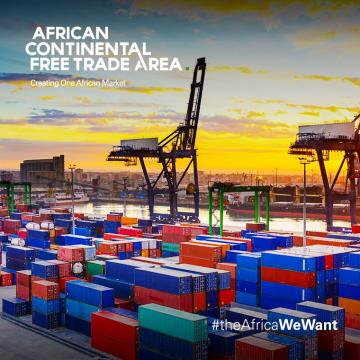
Africa made headlines globally on March 21st, 2018 when forty-four African countries signed the CFTA at Kigali, Rwanda. The continent received numerous positive commendations from within and outside its shores. The CFTA was a decision adopted at the 18th Ordinary Session of the Assembly of Heads of State and Governments of the African Union held in Addis Ababa, Ethiopia in January 2012. This agreement went into force on May 30th 2019, and the operational phase began at the dawn of July 7th, 2019 summit in Niamey, Niger. The CFTA is indeed commendable, because it is the largest free-trade agreement in terms of participating countries, only second to the World Trade Organization (WTO).
This agreement is primarily publicized as a tool to unify the continent and boost intra-African trade, which will in turn provide employment opportunities thereby creating wealth for Africans; the United Nations Economic Commission for Africa estimates that this will boost intra-African trade by fifty-two percent (52%) by the year 2022, and currently intra-African trade is thirteen percent (13%) according to the African Union.
Ambitious agreements such as this, is historically a media jamboree, particularly its publicity to unify Africa and intra-African trade to offset part of what African countries trade with other continents. Example, the East African Community (EAC) was founded with the mission “to widen and deepen Economic, Political, Social and Cultural integration in order to improve the quality of life of the people of Eastern Africa”, The EAC was established to boost regional free-trade and integration. Its member states are Kenya, Burundi, Uganda, Tanzania, Rwanda, and South Sudan. But after nineteen years of existence; how important is the EAC in regard to the economic situation of the region? What is the situation report in terms of integration and regional trade?
The Southern African Development Community (SADC) established in 1980 with the mission “to promote sustainable and equitable economic growth and socio-economic development through efficient, productive systems, deeper co-operation and integration, good governance, and durable peace and security; so that the region emerges as a competitive and effective player in international relations and the world economy”, and with the objectives to achieve economic development, peace and security, alleviate poverty, and enhance the standard and quality of life. SADC was also established to boost regional free-trade and integration. Its member countries are Tanzania, Zambia, Zimbabwe, Angola, Botswana, Comoros, Democratic Republic of the Congo, South Africa, Seychelles, Namibia, Swaziland(Eswatini), Lesotho, Madagascar, Malawi, Mauritius, and Mozambique. After 39 years of existence, what is the situation report in the region? What are the factual gains of the SADC since its establishment in integration and free-trade?
In light of the above, it applies to the Economic Community of West African States (ECOWAS), Common Market for Eastern and Southern Africa (COMESA), and the African Union (AU).
Secondly, in view of intra-African trade to offset part of what African countries trade with other continents. It is another media party, because what African countries trade with other continents is currently near impossible to trade it within Africa. What Africa trade outside are products of the extractive industry. Example, Angola, Cameroon, and Nigeria’s major export trade in value are crude petroleum and gas, and these products are exported mostly to North America, Europe, and Asia. Zambia, Botswana, Tanzania, South Africa, Ghana, and Namibia’s major export trade in value are copper, Gold, and Diamonds and it is exported mostly to Europe, Asia, and North America.
Thus, if these products are to be traded within Africa, where is the market? How many companies are in the continent capable to refine these products? How many companies are being licensed for operation to have these products as their raw materials for production? Are there investments with a view to build such companies within the continent? If there is, how many?
In import trade, Kenya, Ivory Coast, Democratic Republic of the Congo, Tanzania, and Niger’s major imports in value are refined petroleum, and packaged medicaments, and these products are mostly from Asia, and Europe. Ethiopia, Nigeria, Ghana, South Africa, and Angola’s major imports in value are ships, cars, planes, helicopters, machinery, delivery trucks, and refined petroleum, and these products are mostly from Asia, Europe, North and South America.
If these products are to be traded within Africa, where are the suppliers? How many companies are currently in the continent capable of supplying these products? How many companies are being licensed for operation to supply these products to meet the demands? Are there investments with a view to build such companies within the continent? If there is, how many?
Thirdly, it is undeniable that the continent is poor, which means consumers are poor. And if consumers are poor, the market is unprofitable even with a very large market size. African leaders famously cite the size of the African market as one basic reason for this ambitious agreement. They forget most of the consumers are extremely poor hence, purchasing in the continent is low. And if there is no profit, what is the essence of investment?
From the forgoing, the CFTA might be a brilliant initiative in a wrong time. Instead of this agreement that emancipated from the African Union, the union could have instituted an independent advisory and supervisory body of economic professionals, tasked to formulated and supervise policies peculiar to every African country with a view to improve the economic fortunes of every member state. Then, if the standard of living keeps improving across the continent, initiatives such as this could be considered.
References
//au.int/en/ti/cfta/about viewed on 2nd August, 2019.
//en.m.wikipedia.org/wiki/African_Continental_Free_Trade_Area viewed on 2nd August, 2019.
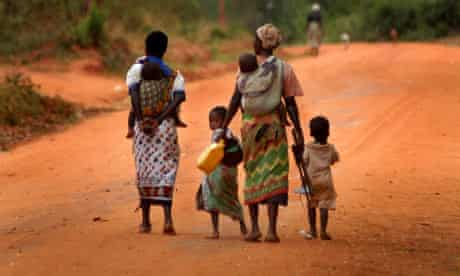
Since the independence of Africa, African governments has initiated several policies and programs with the aim of eradicating or at least mitigate the effects of poverty on the populace, but these promising initiatives appears to be reflective. The rate of poverty in Africa is contestably a continental identity. It is true, African policy makers are conscious of this fact, and important decisions are being made in respect of it, or at least in media briefings. Also, citizens aspiring for political positions have made it an anthem during electioneering campaigns.
Examples in election campaigns; the annulled June 12, 1993 presidential election in Nigeria, the popularly acclaimed winner of the election Chief Moshood Kasimawo Olawale Abiola had the slogan “Farewell to Poverty” in his campaigns. During the 2015 Zambia presidential elections campaigns, president Edgar Lungu prioritized the eradication of poverty in Zambia, primarily through replacement of the constitution. In the 2002 Kenya presidential election campaigns, Mr. Simeon Nyachae promised the alleviation of poverty through economic and political change, in his words, “…agriculture had collapsed and this had subjected millions of Kenyans to abject poverty”. And every other African country has identified the prevalence of poverty.
Examples of poverty alleviation policies and programs; since 2016, Ghana is implementing the National Social Protection Policy, some of the programs under the policy are Cash Transfer System to Poor Households, Livelihood Empowerment Against Poverty, Ghana School Feeding Program, and National Health Insurance. According to the Ghanaian government, the policy is primarily to alleviate or reduce poverty but currently, poverty is on a daily increase in Ghana (World Poverty Clock, 2018).
In same light, Tanzania formulated the National Poverty Eradication Strategy in 1998 and it was incorporated into the Tanzania Development Vision 2025 and some other policies. Some of the programs under this policy are, the Tanzania Mini Tiger Plan 2020 with the aim to support export-oriented and import substitution industries, and it is being implemented since 2005. Secondly, the Business Environment Strengthening (BEST) program with its implementation since 2005, targets the removal of institutional constraint that delay business approval, and some other programs targeting the eradication of poverty in Tanzania.
And almost every other African country have formulated and implemented similar poverty eradication and alleviation policies and programs of Ghana and Tanzania over the years.
Establishing the fact that African policy makers are conscious of the prevalence of poverty in the continent, and several policies and programs have been initiated and implemented, and many are currently being initiated, it is mystifying to keep noting poverty on its uninterrupted northward motion since independence.
In consideration of some of the policies with examples of Ghana and Tanzania, the poverty eradication and alleviation policies and programs are exploitation of vulnerable Africans by politicians for re-election purposes. For instance, how does feeding of primary school pupils translate to poverty eradication or alleviation? How do cash transfers of insignificant amount to poor households translate to poverty eradication or alleviation?
In Tanzania, the registration or formalization of businesses does not amount to neither poverty eradication nor alleviation. In Africa, most of the economy is in the informal terrain thus, reduction of poverty via employment opportunities does not require the formalization of businesses.
In addressing the scourge of poverty on the continent un-fallaciously, government policies should be centered on job creation. Policies should define job creation as an enterprise; the provision of employment opportunities should be a profit making mechanism for enterprises mostly financial institutions. For instance, government policies could be formulated with the aim opening of investment opportunities for existing enterprises and investors.
Example, the Angolan government could have a policy which says, the government will subsidize the transportation and promotion of goods of any enterprise that invest in rural agriculture; the rural areas could also be defined in the policy. With policies such as this, the dwellers in the defined rural areas will create wealth for themselves through their known means of livelihood and other multiplier impacts such as catering services because population will increase in those areas.
References
Agnes A. M., Twilumba M. “Poverty Eradication Programmes in Tanzania” Third Conference of the International Forum on Urban Poverty Nairobi (Kenya), 12-14 October 1999.
//allafrica.com/stories/200211150108.html ������?�:F�B

In recent times, Africa has made headlines positively, hosting some of the fastest growing economies globally, according to the African Development Bank and the International Monetary Fund (IMF). This news has been received with jamborees at governmental and institutional pedestals; the President of the African Development Bank (AfDB) remarked “the state of the continent is good. Africa’s general economic performance continues to improve”. It is indeed worth celebrating in consideration of statistical figures, but these figures don’t reflect the reality of the state of things in regards to the welfare of Africans concerned.
According to the 2019 figures, half of the world’s fastest growing economies in terms of Gross Domestic Product (GDP) is in Africa, and it is led by Ethiopia, Ivory Coast, Rwanda, Senegal, Ghana, Benin, Kenya, Uganda, Burkina Faso and Tanzania. In an understandable economic explanation, an increase in GDP means there is an increase in economic activities which is, new businesses have started operations and existing businesses are expanding. The introduction of new and expansion of current businesses means, more employment opportunities have been created and poverty rate will certainly reduce.
But in Africa, the positive repercussions of its economic growth is nothing more than a documentation of international institutions, a melodious music in the ears of African policy makers, and a wish, in the thoughts of the citizens. Figures from World Bank have proven that the economic fortunes of Africa translate to poverty on majority of its citizens, and these figures at best reflects only half of the situation in the continent.
According to the World Poverty Clock 2018 data, Africa is a host of thirteen of the fifteen countries where extreme poverty is on a continuous rise. This indicates that, the merriment at the African governmental and institutional level is an agony at the homes of its citizens. According to the report of the World bank, Nigeria, the Democratic Republic of Congo, Ethiopia, Tanzania, Mozambique, Kenya, Uganda, South Africa, South Sudan, Zambia, Ghana and Mauritania are the best in hosting people that are extremely poor.
From the foregoing, the report was only for extremely poor people and not the entire poor population. If the entire poor population is to be added, majority of African countries would be celebrated for having over eighty percent of their population poor. Also, it is preposterous to see Ethiopia, Ghana, Kenya, Uganda and Tanzania to be among the countries with extreme poverty; these countries have recorded at a minimum of three years of the said positive economic growth, and now a 2018 report indicts them of being important players in poverty? It is absolutely absurd!
The celebrated economic growth in an ocean of poor people in the continent, is a confirmation that the reported growth statistically, is not of a result of favorable policies being implemented by African policy makers. The statistical growth has no contributions from decisions made by African governments; the growth is a default as a result of international politics and economic competitions of influential countries.
Therefore, the reported growth is a consequence of the rise of commodity prices at international market, and African governments have no influence on the prices. It is factual that, African economies are reliant on the export of mineral commodities, and these commodities are the economy of Africa.
Example, in 2017, sixty-six percent (66%) of Ghana’s total exports in value comprises of Gold and Crude oil, seventy-four percent (74%) Zambia’s total export in value was copper, over eight-nine percent (89.8%) of Nigeria’s total exports in value comprises of Crude oil and Gas, Gold makes over twenty-nine percent (29.3%) of Tanzania’s total exports, over ninety percent (92.9%) of Angola’s exports in value comprises of Crude oil and Gas. In South Africa, Gold, Diamonds and Platinum made up over thirty percent (32.7%) of total exports in value.
Hence, in considerations of facts in regards to the welfare of Africans, there is no economic growth that deserves a jamboree. If there should be a merriment of economic growth, it should be at the households of African families in the continent.
Reference
1. ‘Colonialism Reappraised’ by Samasi Anderson, PowerPoint presentation at the 4th annual Lagos Studies Association Conference, 2017. //www.slideshare.net/SAMASIANDERSON/colonialism-reappraised
2. //www.africa.com/afdb-report-africas-2019-economic-outlook/
3.//www.businessinsider.co.za/fastest-growing-economies-in-africa-2019-1
4. //qz.com/africa/1313380/nigeria-has-the-highest-rate-of-extreme-poverty-globally/
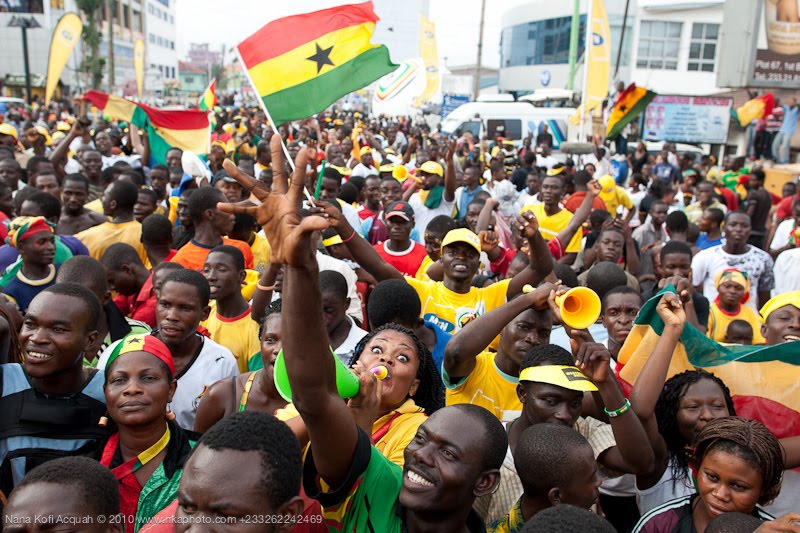
The era of independence that started in the mid-1950s to late 1970s noted several African countries attaining independence. The Africans that championed the course of independence were Africans trained in colonial institutions. Having been trained and worked in colonial educational and other institutions means, the enlightenment which they claimed to have was based on colonial rules; the institutions are owned by colonial powers, and the knowledge in the institutions were introduced by colonial powers. Hence, colonial powers were absolutely aware that after being trained, these set of Africans would demand for independence.
In light of the above, colonial powers made the rules for independence unknown to Africans. For instance, colonial powers decided the date, persons to be in government, and even attending independence ceremonies e.g. the independence date of Ghana was decided by colonial authorities and high ranking colonial officials were guests in the independence celebrations, (Note: Colonialism is the practice of domination of a country by another or a set of countries with a common interest. And decolonization is the process of dismantling domination structures and systems on a country).
Colonial powers only allowed people that have served in their government to continue after the said independence. Example, the first president of Tanzania, Julius Kambarage Nyerere served as Prime Minister, Chief Minister, Member of Legislative Council in the colonial government. Ahmadou Ahidjo, the first president of Cameroon served as Prime Minister, Member of the French Union and other civil service portfolios in the colonial administration. The first president of the Democratic Republic of the Congo, Joseph Kasa-Vubu served as Mayor, Chief accountant and other civil service portfolios in the colonial government.
Nnamdi Azikiwe, the first president of Nigeria served as Member of the Privy Council, Member of Legislative Council, Premier while the first Prime Minister, Abubaka Tafawa Belewa served as Chief Minister, Minister of Transportation and several other portfolios in the colonial government. Kwame Nkrumah of Ghana served as Prime Minister, Headmaster and other portfolios in the colonial government. Likewise, Kenya’s Jomo Kenyetta effectively served in the colonial administration and it was replicated across the continent except Angola and Mozambique whose independence was largely influenced by the overthrow the ‘Estado Novo’ regime in Lisbon, Portugal.
Colonial powers only allowed people that have served in their government to continue in order to maintain the colonial structure: Africa was conquered and the governance institutions that were built was to maintain and implement their colonial interest, which is exploitation of the African resources. After the said independence, African governments didn’t overhaul or restructure the structure of governance, which still remain today. Also, the said independence constitutions were approved by colonial governments (ensuring their colonial interest) those constitutions are the foundation of every existing constitution in the continent today.
After few years of the said independence, Africans realized colonialism is deeper than it was in the time of independence; expressing itself in entertainment, culture, fashion, education, religion, administration of justice, politics and economics.
As part of the implementation of the rules of independence unknown to Africans, which is factually the maintenance of colonialism on the continent; currently, Africans are the champions in maintenance and expansion of the colonial structure example, the implementation of IMF and World Bank structural adjustment programs and policies, campaigns for foreign loans and bond, colonial economic and political doctrines implementation, doctrines of colonial medias and many others that has no relationship with the improvement of the welfare of Africans.
Reassessing why Africa was colonized, the principal reasons were:
1. To have unlimited access to mineral resources cheaply.
2. To have ready market for finished products. In today’s said independent Africa, these reasons are still very much implemented.
In Zambia, the decision making companies in the mining industry are Barrick Gold Corporation, FQM Limited, Glencore Plc. And these companies are from Canada, Switzerland and United Kingdom. In Tanzania, the major companies in its mining sector are Acacia Mining Plc, Resolute Mining Limited, Shanta Gold Limited and these companies are from United Kingdom and Australia. And the major in Nigeria’s Oil and Gas sector are Royal Dutch Shell, Eni S.P.A, ExxonMobil, Chevron, Total S.A. and these companies are from the Netherlands, Italy, and United States of America. Likewise, every other African country. Hence, the reason of unlimited access is guaranteed.
The reason of ready market; it is factual China has made Africa its dump site e.g. textiles. The signed European Union Economic Partnership Agreement with Sub Saharan Africa. The United States proposed free trade agreement with Mauritius, Lesotho, Kenya, Namibia, Ghana, Mozambique and Botswana. All an implementation of ready market.
Thus, the believe of decolonized Africa is a delusion until Africa’s welfare is prioritized and it finally dawn on Africans, which would instigate practical steps in that direction.

Finance is the driver of economic activities and serves as a medium of exchange in today’s world. A society that provides equitable socio-economic opportunity is built on a viable financial system, because the system provides the necessary funding for amenities such as good roads, good health facilities, and affordable credit facilities. For instance, the most equitable countries have some of the biggest financial institutions, e.g. the HSBC, Barclays, Lloyds Banking Group, etc. of the United Kingdom; Citi Group, JP Morgan, Berkshire Hathawa, etc. of the United States of America; AXA, Societe Generale, BNP Paribas, etc. of France; the Chinese I.C.B.C, Bank of China, China Construction Bank, etc.
But unfortunately, Africa is deficient in this respect. African governments look outside the continent in search of funds for developmental projects, because the financial system in the continent is not viable.
Nations receiving loans from outside Africa’s borders have a negative repercussion on the continent. A research project by Halima Ibrahim, University of Nairobi, Kenya “Effect of External Public Debt on Economic Growth: An Empirical Analysis of East African Countries”, established that external debt has a negative effect on economic growth, while domestic debt has no significant effect. According to the paper, some of the effects of external debt are that it increases a large proportion of tax revenue that has to be used to repay foreign loans. This constrains the funds available for investment in the development projects that African countries need to improve their economic growth.
Also, repayment of external debt leads to the depreciation of local currencies, thereby increasing inflation in African countries that are net importers. As a result, GDP growth declines. This decline is likely to be high if the proceeds of external debt are mismanaged or invested in unproductive ventures, which in turn constrains access to funds for servicing debts and others.
African society is incontestably inequitable socio-economically. This is particularly true in sub- Saharan Africa, where there is noted lack of amenities such as good roads, affordable credit facilities, health system, education, water, and power. Africa as a continent lacks a buoyant financial system that can shoulder its demands. Hence, the viability of its financial system is pertinent in having a society that is serene and fair on the socio-economic level.
Advance Payment Tax System
One policy that is essential in having such a financial system is an Advance Payment Tax System. This is a system where payment of future taxes is made at the present. For instance, individuals and organisations can pay taxes for five or ten years in the first year. This system does not stop the regular annual or monthly tax payment system in an economy. Both tax payment systems are choices to be made by the tax payers.
However, individuals and organisations have a choice to either subscribe to advance payment or annual, monthly payment systems. Subscription to advance payment tax system by tax payers is a risk both on the part of the tax payer and of the fiscal authorities. These payments are made relying on predictions of future economic environment, hence any shift in the economic environment will either be a loss for the fiscal authorities and gain for the tax payer – or the opposite.
Thus, this tax payment system makes more money available at the disposal of government for infrastructure and socio-economic development. African governments adopting this system will reduce the acquisition of loans outside Africa, if prudently managed. At the same time, it puts more money in commercial banks and other financial institutions, keeping the financial system alive. Some percentage of these advance taxes are paid directly into “soft bonds” as investment within the economy. Soft bonds are low profile bonds issued by individuals, small and medium organisations or enterprises…

Rhetoric around the benefits of diversification of revenue and industrialisation of African economies is in vogue for reports, conferences, debates and television shows, but implementation has been slow to unfold.
What we hear proposed are implementable, theoretical foundation approaches to the diversification of revenue source and industrialization of African economies. They speak to the theoretical intricacies, dynamics and policies of economic diversification and industrialization in an African economic climate.
The African business and economic environment is absolutely different from the other economic contemporary environments. Africa still struggles with limitations to infrastructure, education, institutions, governance and financial markets. The economic structure in Africa is different from the others in the western and Asian world, hence the manner and approach to African economies must be different if African economies should be diversified and industrialised.
The popular idea of moving African economies from a land-based extraction-oriented economy relying on oil, gold, diamonds, tin and other to engage multiple economies will be a delusion if the determinants to industrialisation such as markets, enterprises, education, funding of key areas, regulations, and transportation and communication infrastructures are not clearly defined.
Without communication and transportation infrastructure, economics will not be in existence. Communication and transportation are pillars of an economy. In industrialising and diversifying African economies, means of communication and transportation should be easily accessible to all consumers and branches of the economy.
The leading means of modern communication is the internet, but most parts of Africa don’t have access to it. The internet is costly to afford in Africa. In the present landscape of communication in Africa, radio, television, postal service, cell phones, magazines and newspapers are affordable and offer easy to access almost to all. Hence, the next step for policy makers is to make and implement policies that will ensure these means of communication remain affordable and accessible. For instance, policy makers can easily start and fund local radio stations, newspapers, postal services and magazines. Also they can make available voice call and short messaging service (SMS) cell phones to all by direct investment in such production companies, as well as continue opening up the internet sector for private investors in order to make it accessible and affordable to all as time progresses.
With this communication infrastructure in place, enterprises and their potential customers can easily and freely communicate with each other, making business alive. Thus, to have a healthy economy, good communication infrastructure is vital.
Among the numerous means of transportation, the affordable, easy to access option for most of Africa is road transportation. Governments or policy makers should prioritise roads far above other means presently, if the economies are to be industrialised and diversified.
Roads are easy and cheap to build and
maintain. Roads should be built to every settlement that is not an island in an
economy. In cases of islands, ferryboats should be made available through
government investment and
grants to local craftsmen and engineers, as the option of using local expertise
is less costly.
Building roads to all settlements could involve construction with concrete, asphalt and bitumen. In Africa, roads are commonly built with asphalt and bitumen, but these products are mostly imported to Africa, making it more costly.
Concrete is an available alternative. Concrete is made in Africa, making it economically attractive compared to bitumen and asphalt. The quality of roads built using any of the materials is the same. Concrete may even be better, if roads can be built to every settlement in an economy within a short period of time.
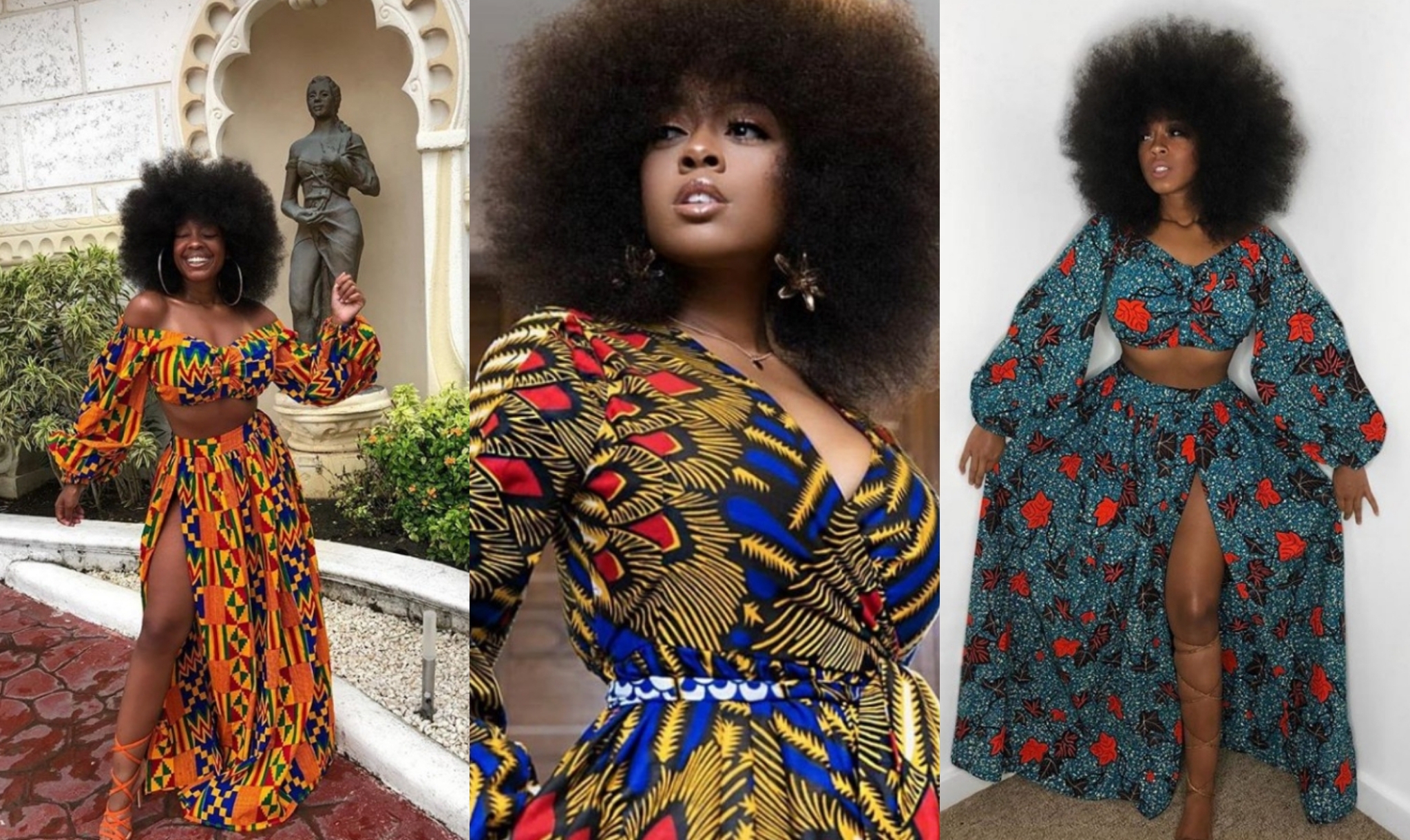




3. Pinch the tip of the condom and place it on the head of your penis. Leave a little bit of space at the top to collect semen (cum). If you’re uncircumcised, it might be more comfortable to pull your foreskin back before placing the condom on the tip of your penis and rolling it down.
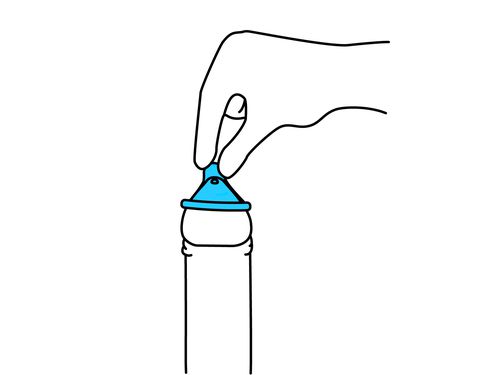
4. Unroll the condom down the shaft of your penis all the way to the base. You can put a few drops of water-based or silicone lubricant inside the tip of the condom before you roll it on. You can also add more lube to the outside of the condom after it’s on your penis. (Water-based or silicone lube can make sex feel even better, and it helps stop condoms from breaking.)
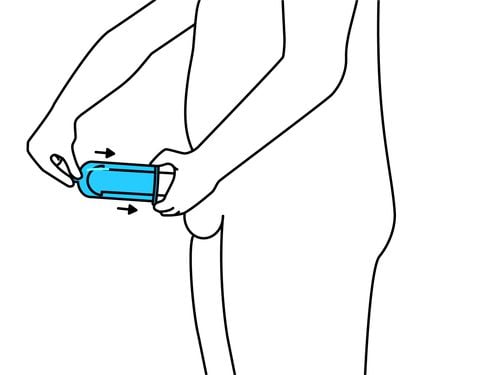
5. Have sex!
6. After you ejaculate (cum), hold onto the rim of the condom and pull your penis out of your partner’s body. Do this BEFORE your penis goes soft, so the condom doesn’t get too loose and let semen out. After ejaculation, hold base of manhood with tissue and take off condom while manhood is still hard, tie the end of condom to avoid spilling and in tissue
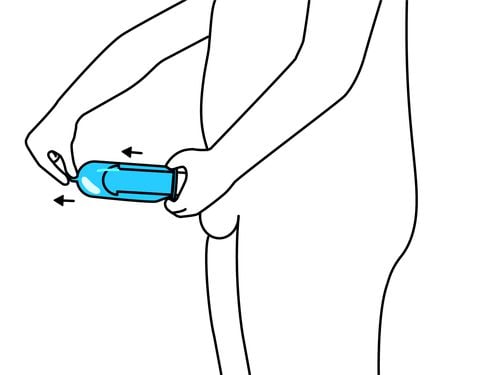
7. Carefully take off the condom away from your partner so you don’t accidentally spill semen (cum) on them. Throw the condom away in the garbage — dump in trash can and not water closet.












